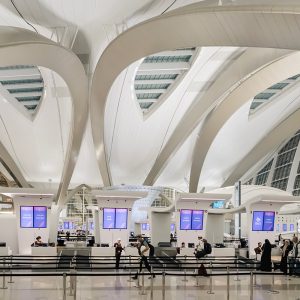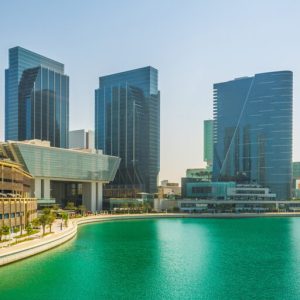Dubai petrol prices are always a hot topic of discussion. Whether you’re commuting to work, heading on a road trip, or just running errands, the cost of petrol plays a crucial role in how much you spend on transportation. As of today, the price of petrol in Dubai has seen an adjustment, and it’s important to understand how this change may affect your daily travel.
How Are Petrol Prices Determined in Dubai?
In Dubai, the government regulates petrol prices, and they can fluctuate each month based on global oil market trends. The fuel price is adjusted monthly by the UAE’s Ministry of Energy and Infrastructure. This ensures that the prices reflect the current market conditions and are aligned with international standards. While some drivers may not pay much attention to these changes, others feel the pinch when they see an increase at the pump.
Current Petrol Prices in Dubai
As of today, petrol prices in Dubai have increased slightly, and here’s a breakdown of how much you can expect to pay at the pump:

- Super 98 petrol: 3.03 AED per liter
- Special 95 petrol: 2.91 AED per liter
- E-Plus 91 petrol: 2.84 AED per liter
These prices may not seem like much individually, but for regular drivers, they add up over time.
Why Are Petrol Prices Rising?

So, why are petrol prices rising? Several factors influence the cost of petrol in Dubai, and understanding them can help explain the increases. First, the price of crude oil on the global market is the biggest factor. If global oil prices rise, the cost of petrol at local pumps tends to follow suit. This is because Dubai imports the majority of its oil, so any fluctuation in global oil prices impacts the local market directly.

Another factor is the value of the UAE Dirham against the US Dollar. Since oil is traded globally in US Dollars, any change in the exchange rate can impact the cost of petrol. If the Dirham weakens against the Dollar, it can lead to higher fuel costs in the UAE.
Additionally, transportation and production costs also play a role. The cost of transporting petrol to Dubai, refining it, and distributing it to gas stations adds to the final price at the pump. If any of these costs increase, it can result in higher petrol prices.
How Does This Affect Your Wallet?
While the price increase might not be dramatic, even a small change can have a significant impact on the budget of many drivers. For example, if you have a large vehicle or a long daily commute, the cost of filling up your tank can add up quickly. In fact, for those who drive frequently or own multiple cars, this price increase could mean paying hundreds of dirhams more each month.
How to Manage the Rise in Petrol Prices
For those who rely heavily on their vehicles, there are a few ways to manage the rise in petrol prices.

Fuel-Efficient Driving Habits
One way is to adopt fuel-efficient driving habits. By avoiding sudden accelerations, speeding, and unnecessary idling, you can reduce your fuel consumption and save money. Additionally, regular maintenance of your vehicle, such as checking tire pressure and changing the air filter, can improve fuel efficiency and reduce the amount of fuel you need to buy.
Alternative Transportation Options
Another option is to explore alternative modes of transportation. Dubai is well known for its efficient public transport system, including the metro, buses, and taxis. For those who live near a metro station, taking the train or bus can be an economical and environmentally-friendly alternative to driving. Many people also turn to carpooling or rideshare services to cut down on fuel costs. These options may not work for everyone, but they can help reduce your reliance on petrol and lower your transportation expenses.
Switching to Electric Vehicles
Some people may also consider switching to electric vehicles (EVs), which are becoming increasingly popular in Dubai. EVs are still relatively new in the UAE, but with incentives such as free parking, toll exemptions, and rebates on registration fees, they are gaining traction. Although the initial cost of purchasing an EV may be higher, the long-term savings on petrol can make it a worthwhile investment.
The Economic Impact of Rising Petrol Prices
The increase in petrol prices can also have a broader economic impact. When fuel costs rise, it affects not just individual drivers but also businesses that rely on transportation. For example, delivery companies, taxi services, and transportation companies may see their operational costs increase, which could lead to higher prices for goods and services. This ripple effect can impact everything from grocery bills to shipping costs for products.
The rise in petrol prices can also affect tourism in Dubai. Many tourists rely on taxis, car rentals, or personal vehicles to explore the city. If fuel prices continue to rise, it could make it more expensive for tourists to travel around, potentially reducing the number of visitors who choose to rent cars or use taxis. This, in turn, could have an impact on Dubai’s hospitality and tourism industries.
Government Initiatives to Manage Petrol Price Increases
While the recent increase in petrol prices may be a concern for many, it is important to remember that the cost of fuel is influenced by many factors that are often outside the control of the government. However, the UAE government has been working to manage the economic impact of these changes through various initiatives, such as investing in renewable energy and promoting more sustainable transport options.
What You Can Do to Prepare
As a resident of Dubai, it’s important to stay informed about these changes and adjust your habits accordingly. Whether it’s adopting more fuel-efficient driving practices, exploring public transport, or considering the switch to an electric vehicle, there are ways to manage the impact of rising petrol prices.
Conclusion: Navigating the Rising Petrol Prices
In conclusion, while petrol prices in Dubai have increased today, it’s essential to understand the factors driving these changes and the steps you can take to mitigate their impact. By staying informed and adjusting your habits, you can better navigate the challenges posed by rising fuel costs. And who knows, as the global oil market continues to fluctuate, the cost of petrol could go down again – so stay tuned for future updates!
Also read: Everything You Need to Know About Dubai’s 2025 Liquor License Changes














